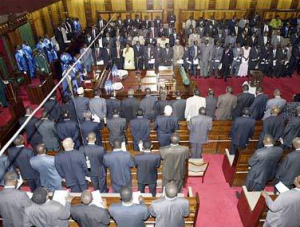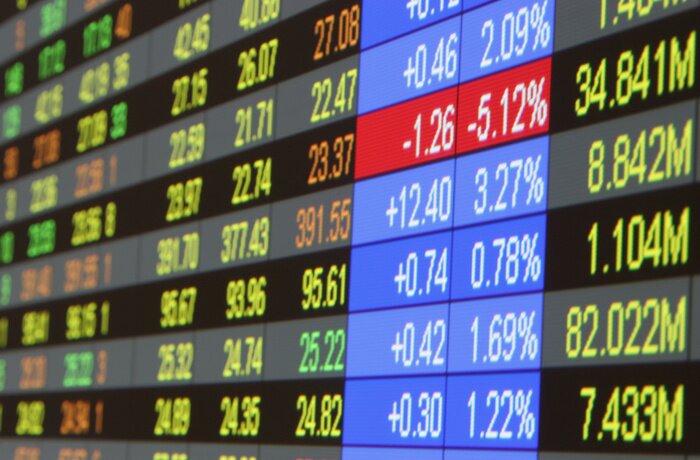Does Kenya wants to control Kismayo, Barawe, and Marka ports?
Kenya targets al Shabaab’s lifeline
Kenyan military planners have targeted the capture of Kismayu and two nearby secondary ports to cut off billions of shillings earned by al Shabaab to finance their insurgency.
The imminent capture of Kismayu and the secondary ports of Marka and Baraawe will suddenly cut off money earned by al Shabaab from port fees, illegal smuggling of sugar and other commodities to Kenya and the export of charcoal, according to a recent UN report.
 It is estimated that al Shabaab earns up to Sh5 billion ($50 million) a year in port fees and Sh6 billion ($60 million) in business taxes.
It is estimated that al Shabaab earns up to Sh5 billion ($50 million) a year in port fees and Sh6 billion ($60 million) in business taxes.
al Shabaab also levies fees from road checkpoints, human traffickers and gun runners, according to the report.
The Kenyan troops have already captured six towns during their six-day military onslaught against the militants, including the pirates’ haven of Ras Kamboni, Dhobley, Tabda, Beles Qooqani, Oddo and Kolbio. (READ: Kenyan forces capture Shabaab’s Ras Kamboni)
Possible assault
Other soldiers are massing near the Kiunga border point in the south eastern part of Kenya for a possible assault from the South.
The strategy appears to involve a two-pronged assault on Kismayu using a combined force of the Kenya Navy and the Kenya Army.
While the ground troops close in on Kismayu from the south, the Navy will attack from the North, sealing any possible exit points for both the militants and the pirates through the Indian Ocean. (SEE IN PICTURES: Kenya army at war in Somalia)
Somali refugees, pouring into Kenya at Liboi, said they were escaping bombing raids by Kenya Air Force jets and the ground assault.
Details of how al Shabaab have converted Kismayu and smuggling routes into lucrative money collection centres is contained in the latest UN monitoring group report on Somalia.
The report, released at the end of July, says the group generates between $35 million and $50 million per year from port revenues, of which at least $15 million is based on trade in charcoal and sugar.
This is done through a co-ordinated trading cycle built upon the export of charcoal, which in turn finances the import of sugar, much of which is subsequently smuggled across as contraband into neighbouring countries, particularly Kenya, says the report.
Fraudulent invoicing
“Shipping companies deliver sugar to Kismayu and collect charcoal for the return journeys. Bank accounts in the Gulf States where the profits of this trade are deposited can be used to launder voluntary contributions to al Shabaab through fraudulent invoicing, overvaluing of import proceeds and undervaluing of exports,” reads the report.
This trade cycle is dominated by networks of prominent Somali businessmen operating mainly between Somalia and the Gulf Cooperation Council (GCC) countries, notably Dubai in the United Arab Emirates.
The viability of the Kismayu trade corridor depends in large part upon its proximity to Kenya, the remote and porous 682 km border and the profitability of the contraband trade.
Furthermore, the Monitoring Group believes that well-organised criminal networks with links to al Shabaab are taking advantage of the porosity of the border to smuggle people, commercial goods and weapons.
al Shabaab not only attracts their business by imposing lower rates of taxation in Kismayu than at ports controlled by the Transitional Federal Government but also actively promotes large-scale imports of sugar and exports of charcoal by offering preferential access and tax breaks to al Shabaab affiliated businesses.
“Consequently, many Somali traders avoid Mogadishu, preferring to discharge their cargoes at Kismayu or other ports where import taxes are lower.
“For example, Mogadishu port authorities charge an import duty in the amount of $1,300 on a mid-size vehicle,” reads the report.
At Kismayu al Shabaab charges only $200. Even if e transporter then wishes to deliver the vehicle to Mogadishu, it costs another $200, including driver fees, fuel and miscellaneous expenses, to drive the car from Kismayu to Mogadishu.
“The vast majority of imports via Kismayu are not intended to serve the local population, but are destined for other parts of southern Somalia that could be equally or better served by Mogadishu or be smuggled into neighbouring countries as contraband,” reads the 417-page report.
Thus in April 2011, Kenyan sugar sold at between Sh4,800 and Sh4,900 per 50 kg sack (approximately $58-$60), while the same amount of sugar smuggled from Kismayu sold in Garissa at between Sh4,350 and Sh4,450 (approximately $53-$55), even after a mark-up of roughly 20 per cent.
According to a senior Kenyan customs official in North Eastern Province, about 10,000 bags of smuggled sugar may be entering Kenya from Somalia on a daily basis.
The report also quotes Kenyan authorities as having discovered light weapons and ammunition concealed in some sugar consignment.
“In addition to those taxes on businesses, al Shabaab operates a comprehensive web of mobile military checkpoints where transportation operators and passengers are all obliged to pay taxes for free passage,” reads the report.
“The Monitoring Group therefore considers many of the major traders and transporters who use Kismayu to be consciously and voluntarily engaging in commercial transactions that accrue significant financial benefit to al Shabaab,” the report says.
The report names two prominent figures in the network are businessmen with historical linkages to militant Islamist groups in Somalia: Abukar Omar Adaani, 42, and Ahmed Nur Jim’aale.
Ironically, the report points a finger at the Transitional Federal Government saying it is complicit in maintaining the Kismayu trade corridor that plays such a key role in financing the al Shabaab war effort.
The Monitoring Group has confirmed that most commercial motor vessels transporting goods to the port of Mogadishu discharge only part of their cargoes in order to deliver the remainder to Kismayu and collect charcoal destined to GCC countries — with the full knowledge of the Mogadishu port authority,” read the strongly worded document.
It says the manager of Mogadishu Port, Sayid Ali, is a long-time employee of Abukar Omar Adaani and represented Adaani’s business interests in Kenya until accepting his current assignment.
“Several of the individuals involved are well-established businessmen and real estate investors in Kenya. An opportunistic and mutually beneficial kind of “pax commerciale” has been established between those criminal networks and al Shabaab.”
______
Daily Nation
Comments
comments
 Calendar
Calendar






































